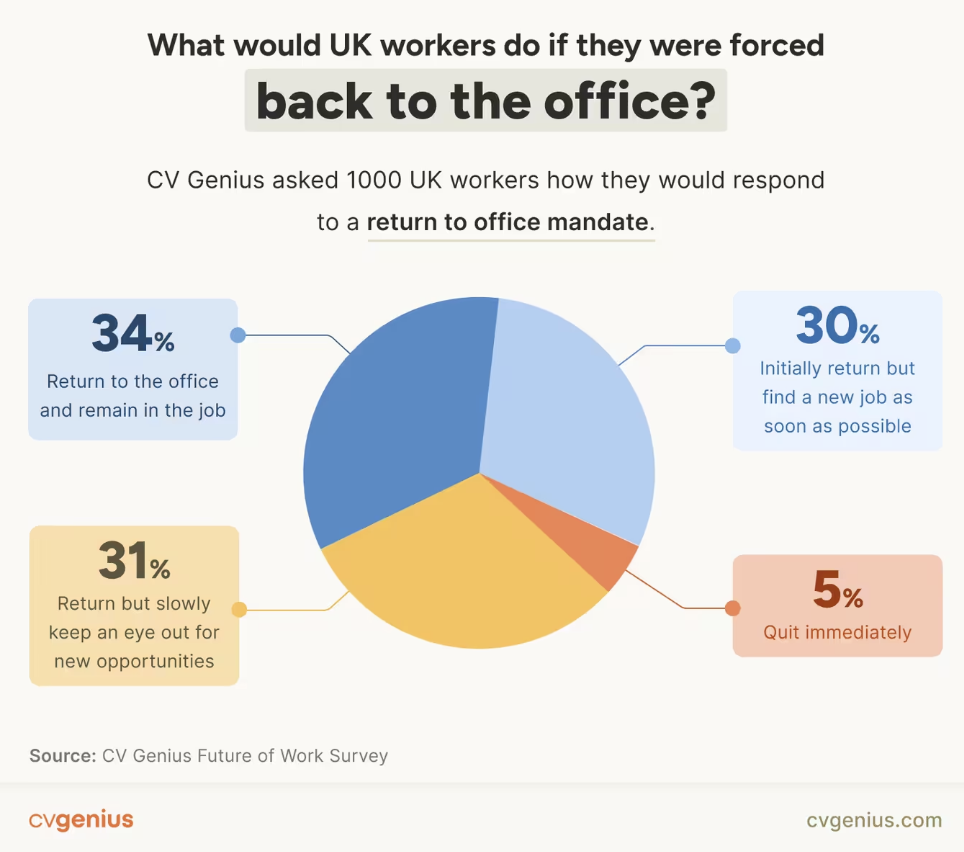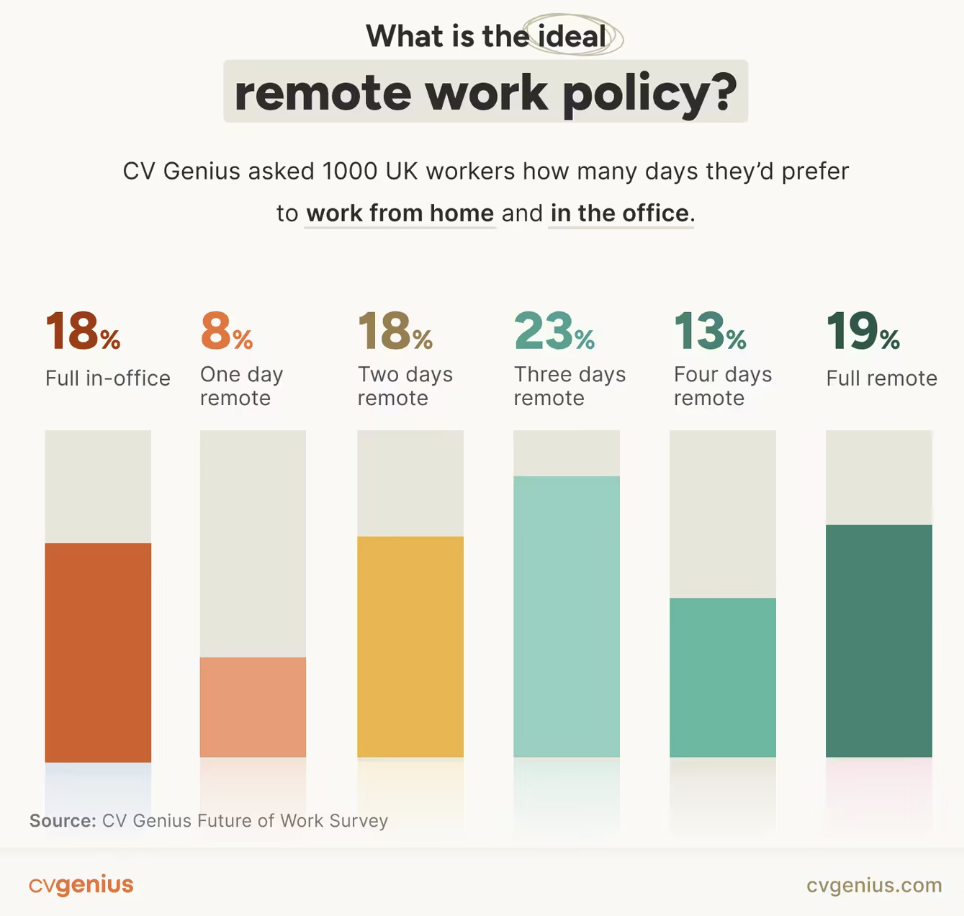
'The 9-5 is dying and the best talent knows it'

Three in 10 employees in the United Kingdom are blaming the lack of flexibility at work for their burnout, according to a new report, which arrived at a time when organisations are reverting to traditional working arrangements.
The report, released by CV Genius, surveyed a thousand full-time UK employees to identify their attitudes towards flexibility in the workplace.
Geoffrey Scott, senior hiring manager at CV Genius, said their findings point to "some correlation" between inflexible work schedules and mental health issues.
According to the report, 67% of the respondents experienced depression because of their work. Another 87% also said they have been stressed or burnt out at least once.
Nearly a quarter of Gen Z (71%) and Millennials (72%) attributed their feelings of depression to their job. In fact, 30% of the respondents blamed inflexible work schedules for their poor mental health.
"Our data found that when employees are forced to work fully in-office and on a rigid time schedule, it negatively impacts their productivity and their mental health — leading to stress and burnout," Scott said in a statement.
On the other hand, the research found that job satisfaction and output improve when employees can work flexible hours.
More than half of flexible workers in the UK said the arrangement benefits their productivity (61%) and made them feel less stressed (64%).
"Flexible work isn't just a perk; it's a necessity for today's workforce," said Ethan David Lee, career expert at CV Genius, in a statement.
"Employers who adapt to these expectations will not only improve morale and wellness for their employees but also foster a more productive and committed workforce. Despite some executives still pushing for a return to office, those days are gone. The 9-5 is dying and the best talent knows it."
The findings come as a growing number of organisations across the world are announcing office-return mandates, with some implementing a full office comeback for their workforce.
In the UK, the report found that five per cent of employees would quit immediately if they were required to come to the office full time.
Around three in 10 said they would initially return to the office but would try to find a new job as fast as possible (30%) or they would tentatively start looking for a new hybrid or remote opportunity (31%).

The results show the importance of working from home for many UK employees. In fact, 51% of them said they would accept lower pay if it meant working remotely.
Lee said this shows that the flexibility to work remotely has "transcended traditional benefits like salary and promotions."
"People are no longer defining themselves by their work and are realising there's more to life than what they do at their desk," the career expert said.
But if they cannot work remotely full time, UK employees appear to be willing to work under hybrid arrangements.
Nearly a quarter of employees (23%) said they want three remote work days, while 18% said they want two remote days per week.

"Companies thinking about enforcing a return-to-office policy must first consider how workplace flexibility is now a cornerstone of employee satisfaction and retention," Scott said.
"Ignoring the value employees place in having flexible working arrangements and pressuring them into returning to the office full-time could significantly hurt a company’s ability to attract and retain top talent."